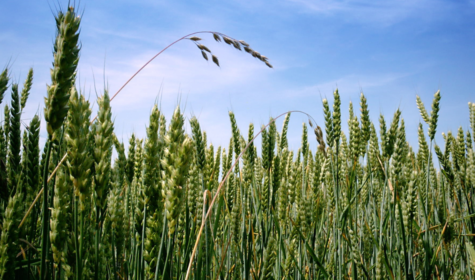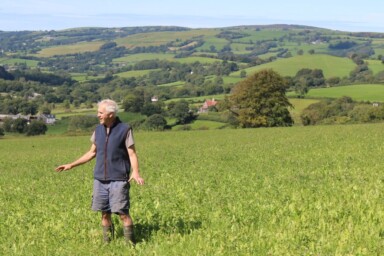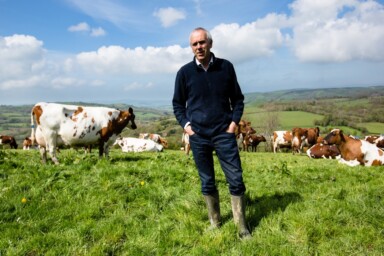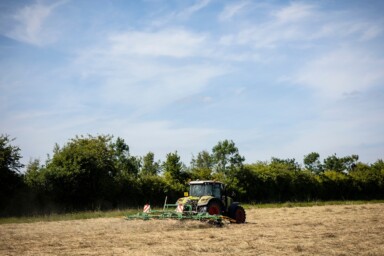Over the next few months and years, significant thought will be given to the lessons we need to learn from the coronavirus pandemic, its impact on the global economy, the rapid way in which it spread across the global population and the impact it is having on our daily lives. One aspect to consider will surely be how to build greater resilience into our food systems, so they have the ability to better endure a crisis in the future.
Many countries, the UK amongst them, have come to depend heavily on imported food and therefore on the resilience of food systems in other countries as well as our own. Food chains have become extremely long, with consumers and producers kept far apart. This creates an inherent vulnerability in the system. One break in the chain and the whole thing falls apart. SFT chief executive, Patrick Holden, wrote about this in his recent blog on the coronavirus outbreak.
Resilience is the cornerstone of a sustainable food system. The FAO defines resilience as: ‘The ability to prevent disasters and crises as well as to anticipate, absorb, accommodate or recover from them in a timely, efficient and sustainable manner. This includes protecting, restoring and improving livelihood systems in the face of threats that impact agriculture, nutrition, food security and food safety.’
Concern about the food system has been growing for a number of years now, as the impact of climate change has become unavoidably apparent. As instances of extreme weather events and global temperatures have risen, farmers have been increasingly focused on how to adapt food systems to improve resilience and help address those challenges. For many, agroecology has proven itself to be the answer. Agroecological systems are more resilient since they have a greater capacity to recover from drought, floods or hurricanes. Furthermore, they foster stronger socio-economic resilience because by diversifying the range of crops grown and reducing dependence on external inputs, producers dilute economic risk.
However, the cracks that the coronavirus has exposed aren’t necessarily at an individual farm level but highlight a systemic weakness across the food sector. This was most clearly seen at retail level with shortages of staples such as pasta and rice and with chicken breast flying off the shelves. Many of the shortages seen across supermarkets were due to stockpiling by people searching for a greater sense of security in a time of crisis. However, the speed by which basic essentials were depleted, highlighted the reality of lean supply chains and just-in-time inventories that supermarkets have adopted the world over. In the UK, the supermarket’s reliance on this kind of supply chain means that the country only maintains five to 10 days’ worth of groceries, and often less in the case of fresh produce. The precarious position that this can create was made apparent when Hurricane Sandy hit New York City in 2011 and the city faced a significant risk of food shortages. Surely this dynamic is worth further review if we are to learn lessons for the future.
One way in which we can hope to increase the resilience of the global food system is by supporting a wider range of suppliers. By diversifying away from a centralised supply chain to a more multifaceted one, we can increase the food system’s ability to react and adapt to shocks. Shorter supply chains have greater resilience because they have less links in the chain and therefore less opportunity for the chain to break in such a crisis. Over recent decades, the UK’s small farms and small retailers have been progressively centralised, as supermarkets have grown in strength and reach. Olivier De Schutter, the UN’s Special Rapporteur on the right to food (2008-14) highlighted the need to protect localised food systems when he wrote, “It is urgent that [we put ourselves] in the service of supporting diversity not uniformity. The shift towards relocalisation and re-territorialisation of food systems must be seen not as a threat but as an opportunity for fairer and more sustainable food systems.” A position that Patrick Holden and the SFT have long supported.
To achieve this shift there needs to be Government action to build on the pioneering work of farmers, growers and local food campaigners who have developed a range of successful ways to market food locally. But we now need concerted action to achieve shorter, fairer and cleaner supply chains nationally. While the SFT’s argument is not to revert back to a system based solely on small-scale agriculture since there is an important food security role for large-scale farming to play in supplying the supermarket demand, we have continuously been advocating for the Government to invest in the relocalisation of our food system and the infrastructure that is needed to support it. The UK needs to support smaller scale producers and local food systems in order to reverse the growing trend of consolidation within the sector, because having a more varied farming sector builds greater resilience into our food system. As Professor Tim Benton said, “There is a real possibility that international supply chains will collapse … the best way to protect against this risk is to diversify and localise the sourcing of food.” By relocalising food systems, we can shorten supply chains and make sure that there is a resilient food system and a thriving local economy. This not only supports food security for the general public but also helps communities as people with resilient livelihoods are better prepared for – and can better cope with – shocks, whether recurrent, protracted or unexpected.
However, the concept of resilience isn’t limited to economics. Key to surviving any crisis situation is the resilience of individuals and communities. Whilst epidemiologists have advised we practice social distancing to slow down the spread of the virus, we are also called upon to be creative in our attempts to help others and to cooperate. Balcony singing in solidarity has been a growing reaction to living in isolation across Europe, whilst others are putting together care packages to be delivered to the most vulnerable.
On the one hand we are all dependent on the support of friends and family to help us cope with living in self-isolation, and on the other, we are increasingly aware that the actions we take can have huge consequences for individuals that we have never met. What this demonstrates is the interconnectedness of our world – we have a responsibility to protect each other in so many ways.
As we learn to adapt to live in such uncertain and challenging times, perhaps we will begin to reconsider our relationship with the natural world, developing resilient, local ecosystems, re-connecting with where our food comes from, re-discovering lost skill-sets that can help us thrive in challenging times, and considering how we can all live alongside each other more sustainably.
Photograph: Chris Alban Hanson







